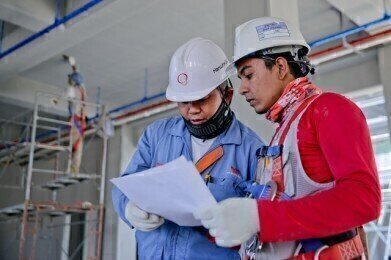Safety
Why Does Safety Culture Matter for the Oil Industry?
Aug 20 2021
From Deepwater Horizon and Chernobyl to the NASA Space Shuttle Challenger explosion, poor safety culture has been identified as a key driver of disasters across a range of industries. A strong safety culture is particularly important in the oil and gas industry, where employees are continually engaged in high-risk activities such as operating heavy equipment and working in close proximity to flammable gasses. Below, we explore why safety culture is paramount to the oil and gas industry and what companies are doing to improve their credentials.
Defining safety culture
The UK Health and Safety Commission defines safety culture as “the product of individual and group values, attitudes, perceptions, competencies, and patterns of behaviour that determine the commitment to, and the style and proficiency of, an organisation’s health and safety management.”
Gold-standard safety culture
At French-owned multinational oil and gas company Total, safety is deeply embedded in the company’s DNA. The company views safety as a “foundational value” and prides itself on engaging stakeholders across the board, from executive-level managers to infield employees. This approach has won Total a reputation as a company underpinned by gold-standard safety culture.
“We had two main objectives: to ensure that all employees and contractors get home safely and to prevent the occurrence of major accidents by managing major risks,” says Bernadette Spinoy, former senior vice president of health, safety, and environment (HSE).
At Shell, the safety culture is underpinned by the Goal Zero ambition designed to eliminate injuries, fatalities and leaks across all operations. “A strong safety culture is complemented by a competent workforce. We ensure that people responsible for tasks with a significant safety hazard have the necessary training and skills. Our safety experts work in networks to share and implement best practices around the world,” states the Shell website.
When safety culture fails
When company’s fail to build a strong and robust safety culture the results can be devastating. In the 1980s, an explosion and fire at the Piper Alpha offshore production platform claimed more than 160 lives and cost the company £2 billion in financial losses. A report into the incident cited poor safety culture as one of the major drivers of the deadly event. More recently, the Deepwater Horizon disaster resulted in 11 fatalities and a cost of more than US$65 billion for the company. Again, a failure in safety culture was found to be a key contributor.
To find out more about why all companies in the oil, gas and petrochemical space should prioritise safety culture, as well as access links to useful checklists and reports, don’t miss ‘Safety Culture - What is it and why should you pay attention to it?
Digital Edition
PIN 25.1 Feb/March
March 2024
In This Edition Safety - The technology behind the ION Science Tiger XT - Safety with ammonia and LOHCs as hydrogen carriers Analytical Instrumentation - Discussion on new tribology te...
View all digital editions
Events
Apr 28 2024 Montreal, Quebec, Canada
Apr 30 2024 Birmingham, UK
May 03 2024 Seoul, South Korea
May 05 2024 Seville, Spain
May 06 2024 Riyadh, Saudi Arabia


.jpg)















